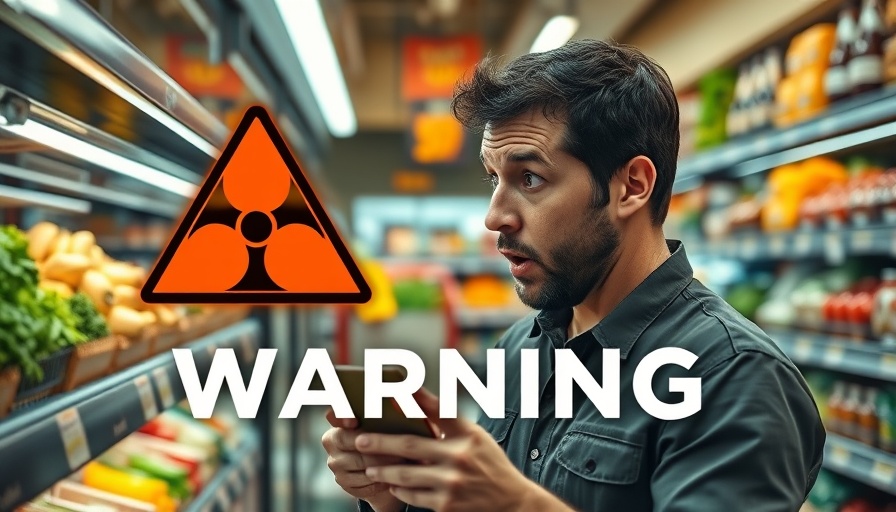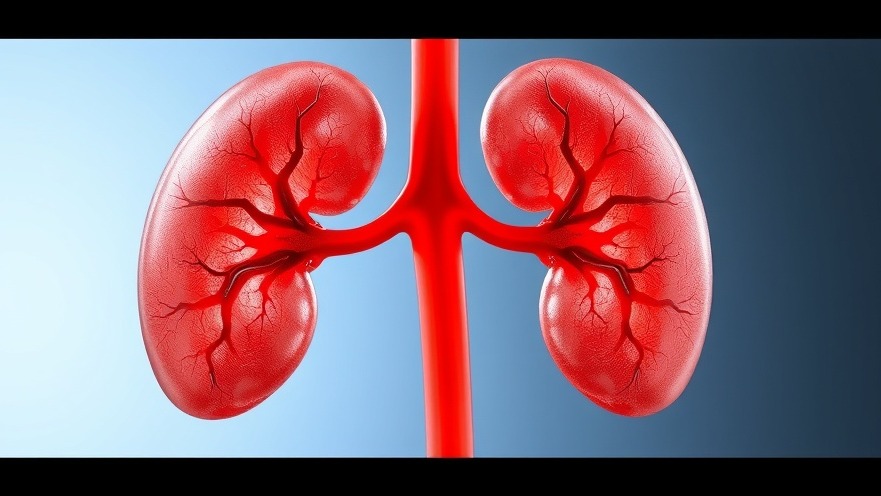
Imminent Risks: The Chemical Industry's Legal Shield
The unveiling of a controversial bill in Congress, known as section 453, is stirring alarm among health advocates and average citizens alike. This bill, if passed, would grant chemical companies, including giants like Bayer, blanket immunity from lawsuits regarding pesticide-related harms. Such a significant legal shift raises existential questions about public health and safety, particularly when understanding the historical context of pesticide use in agriculture.
In 'They’re Poisoning Us...Legally', the discussion dives into the troubling implications of increasing legal protections for chemical companies, prompting deeper analysis on the consequences for public health.
The Consequences of Chemical Immunity
Granting legal immunity to chemical companies could open floodgates for unchecked pesticide use, threatening the health of millions. Kelly, a guest expert on the issue, eloquently articulated the ramifications, noting that this move could lead to an increase in serious health problems linked to pesticide exposure, including cancer, Parkinson's disease, and infertility. The Environmental Protection Agency (EPA), which is traditionally tasked with safeguarding public health, appears gridlocked, leaving citizens vulnerable to the longstanding safety concerns associated with pesticides.
The Battle Over Glyphosate
At the heart of this discussion is glyphosate, a widely used herbicide implicated in numerous health-related lawsuits. Bayer, the company that produces the notorious Roundup, has faced mounting scrutiny after a series of litigation outcomes linked glyphosate to cancer. With over 165,000 pending lawsuits, Bayer has a vested interest in the passage of this bill that could essentially extinguish current and future liability.
Marketing vs. Reality: The Misleading Narrative
The narrative constructed around glyphosate and similar chemicals often emphasizes agricultural efficiency and food security. The companies involved have positioned themselves as defenders of food supply, claiming that without these chemicals, global food scarcity would ensue. Yet, this argument overlooks the extensive health costs incurred from pesticide exposure. The real question becomes: how can we prioritize public health while ensuring agricultural productivity?
Grassroots Movements: The Fight for Transparency
Grassroots organizations, such as Modern A Alliance, have emerged, ostensibly representing farmer interests. However, critics argue that these groups are merely front lines for chemical producers aiming to push their agenda without accountability. As consumers, the responsibility lies on us to demand transparency and challenge the narrative propagated by industry-funded organizations.
Grassroots Advocacy and Your Role
So, what can you do? The first step is to make your voice heard. Contact your elected representatives—let them know you oppose legal immunity for chemical companies. More grassroots efforts can shape this discourse; tools like stoppoison.org can keep you informed and engaged. Moreover, organizations like Stand for Health Freedom arm constituents with actionable steps to address the looming threat of this bill.
The Call to Action: Unite for Public Health
It's imperative that we act quickly and decisively. If the chemical companies succeed in pushing through this immunity effectively, reversing such a decision later could prove daunting. The health of future generations hangs in the balance. We must share insights, educate others, and foster a community-ready to tackle these challenges head-on. Every action counts, from making phone calls to discussing these issues with neighbors and family.
As this critical issue unfolds, one thing remains clear: the fight against corporate immunity for the chemical industry is not just a battle for today but a legacy for tomorrow.
 Add Element
Add Element  Add Row
Add Row 



Write A Comment